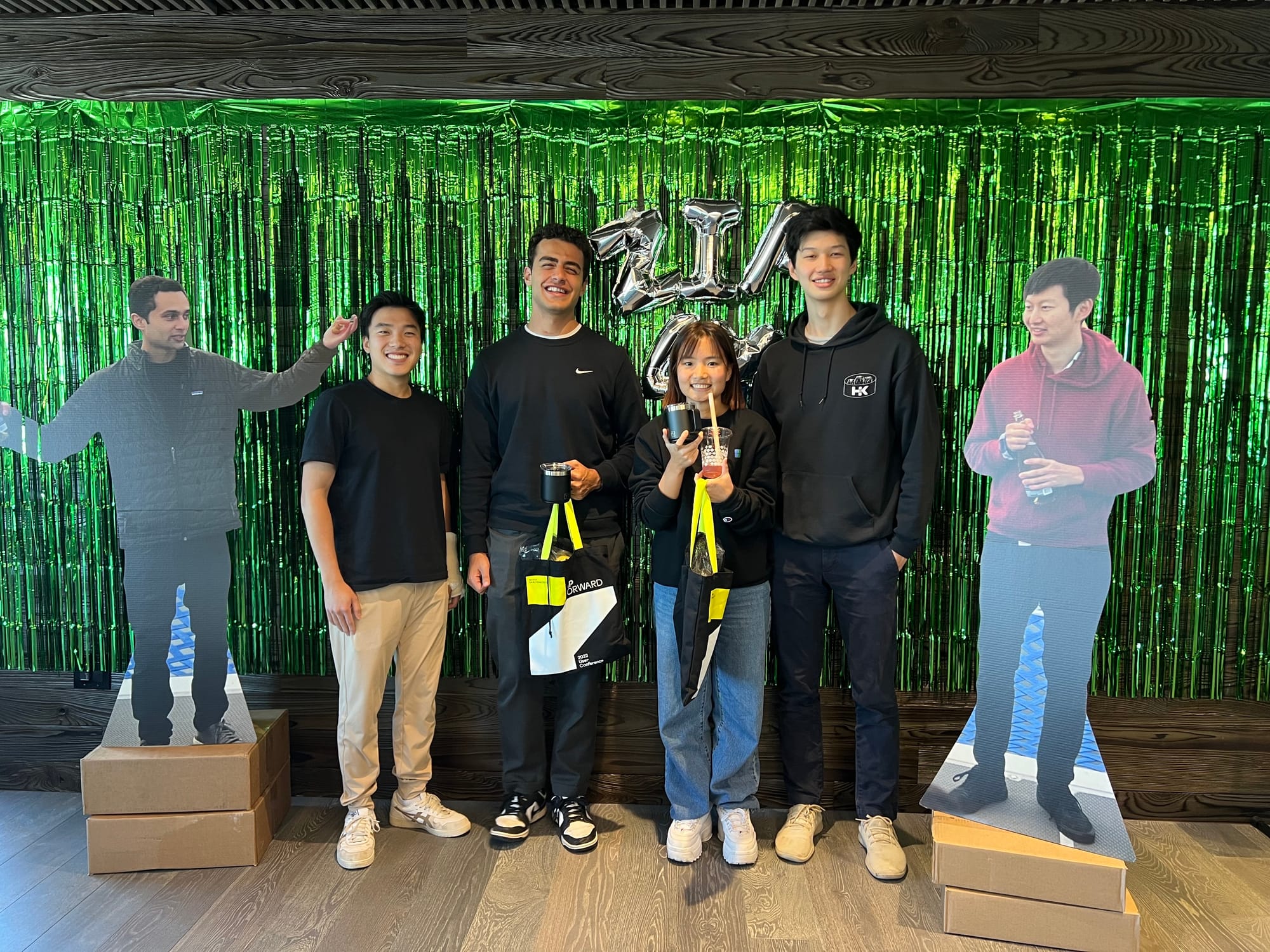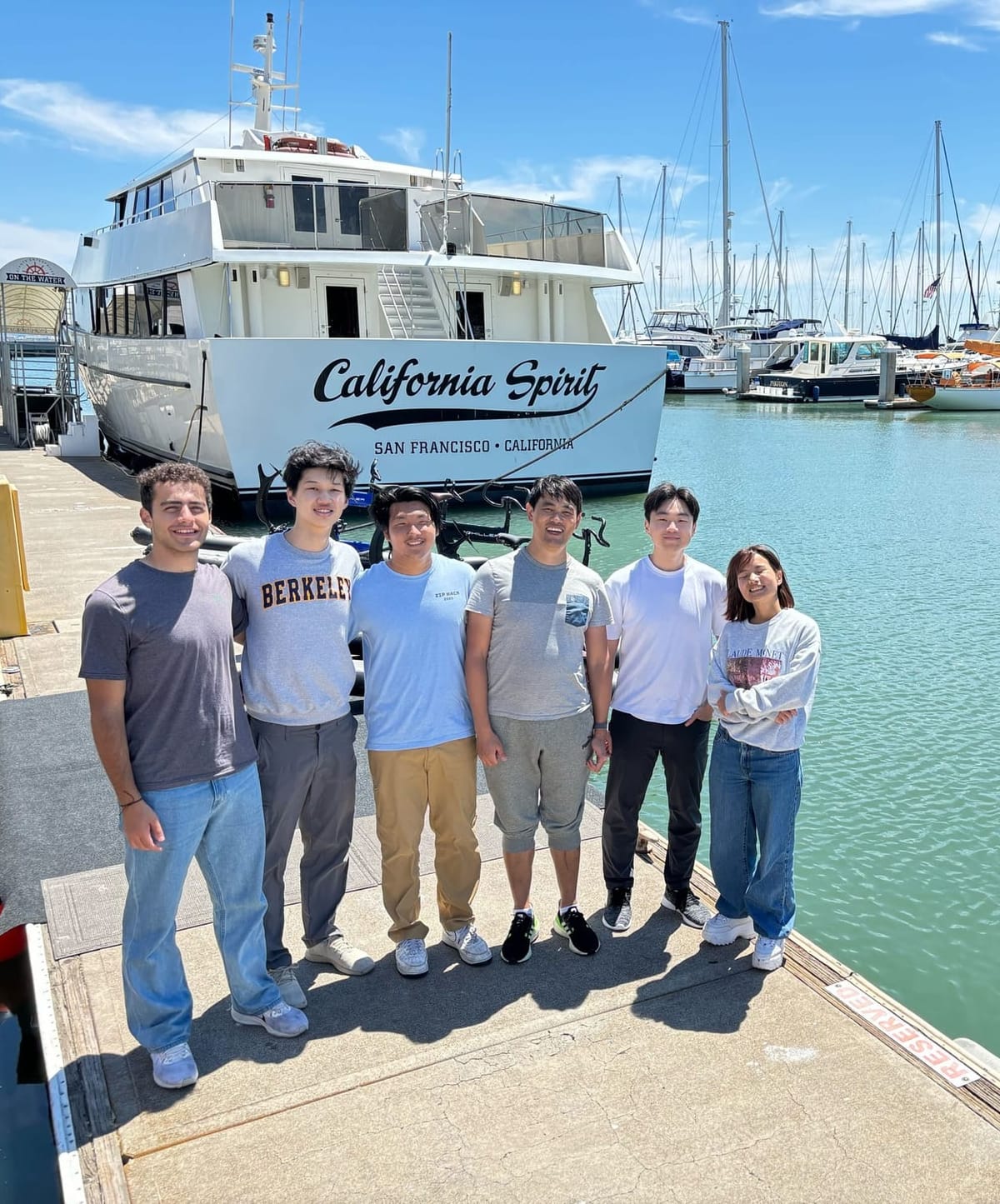
This summer, as part of Zip’s intern program, we had the opportunity to host two amazing interns, Andreas and Sophie. In this blog, Andreas and Sophie will share with us the details of their journey as Zip interns and shed some light on the innovative work that they did. Let’s jump in!
What drew you to intern at Zip?
Andreas: There was a ton of factors that drew me to Zip - I think the most important ones were the size of the team and the current velocity of Zip as a company.
Size mattered because I wanted to get to know the people I was working with, and that’s much easier to do at a company the size of Zip vs. a big tech company. This has also been hugely beneficial in terms of learning - when you know the people better, it’s much easier to ask them questions and learn + grow as an engineer.
Velocity mattered because I wanted to work at a place that felt “exciting,” and where the features I’d be building were customer-facing and in direct response to newly developing needs.
Sophie: I knew people who interned at Zip before and they all said they had really good experiences. Additionally, I knew, going into the summer, I wanted to work at a company where I could work on projects that would directly impact customers. From everything I’d heard, Zip seemed like the perfect place for that.
What were your first impressions of the company and its culture?
Andreas: I was super impressed. You ramp up pretty fast at Zip — my first day was June 10th, and I merged my first PR on June 12th. Culture wise, everyone at the company is really awesome to get to know, and do a great job of making you feel welcomed. One thing that stood out to me is how close you get to people outside your team or even function - I got to know and would regularly get lunch with some of the people working on the BizOps side of the company, which is amazing since it gave me a different perspective to Zip which you don’t usually hear from the Engineering teams.
Sophie: It was super cool how much I was able to do during my short time at Zip! You hit the ground running at Zip, and within the first week I was already changing things in Zip’s user interface. Like what Andreas said, the work culture at Zip is super friendly! I always felt comfortable asking questions, and, in particular, I loved how people at Zip hype each other up.
Describe a typical day in your internship.
Andreas: As an intern, you basically attend 1-2 meetings (e.g. sprint planning, quality review) in the morning with your team or intern manager. Then the rest of my day would be spent working on one of my two main projects (more on those later), going to office hours if I was blocked on something, and every so often, going on an off-site with my team (we went water-biking, had a VR experience and went out for dinner a few times 🙂)
Sophie: Like Andreas, every day I had 0-3 meetings in the morning or afternoon and the rest of the day was spent working on projects. I also was able to attend some really nice dinners with my team 🤤. One dinner in particular was at State Bird Provisions, and I swear it was some of the best food I’ve had.
What projects did you work on during your internship?
Andreas: I worked on two main projects during my internship:
The first project was Scoring Comments — essentially, on our Sourcing product, we have the ability for buyers to send out surveys to potential vendors, and then we let the buyers score the vendor responses. Scoring Comments allows them to add context as to why they scored a certain response a certain way.
The second feature, again on Sourcing, was to allow buyers to upload “Project Requirement” files for the sourcing request, so that the vendor could have a clearer picture of what the project entails and how to respond to the surveys.
Sophie: The two projects I worked on were Buyer Beta and Vendor Profile FAQs:
For Buyer Beta, I helped streamline the vendor onboarding process. Essentially, I worked on creating a 1-click-review-approve process where vendors could review their vendor profile (a centralized source of vendor company info) and then using this vendor profile, send all the required info a buyer is asking for to the buyer using just 2 or 3 clicks. Additionally, to ensure that a vendor profile has the most information possible, we allow vendors to update their vendor profile after sending info to the buyer that wasn’t initially on the vendor profile.
For Vendor Profile FAQs, I worked on creating a FAQ section for the vendor profile. With this, vendors can now personalize the information they share with buyers! In the future, these FAQs are going to be used to fill out surveys or forms that buyers send vendors, further streamlining the vendor onboarding process.
What skills or knowledge did you gain during the internship?
Andreas: I think the most important skill I learned is to build for the future and “just own it”.
Build for the future
Due to the changing nature of the product, it’s almost certain that what you’re building is at some point going to be extended or modified. It matters to build features to be extensible and easily modifiable. This doesn’t only help future engineers, but also yourself.
For example, while building Project Requirements, even though the designs were initially slated for supporting only one attachment for Project Requirements, I built the feature so that it can support multiple (but only accept one). The same day I delivered Project Requirements, one of our customers requested extending it so we can support multiple attachments - all I had to do was remove a few asserts I had in the backend to enforce the single file requirement, modify a test and it was ready!
Just Own It
It’s a given that while you’re building a feature, you’ll have some inspiration on how it can be designed a bit differently for a better user experience. One of the great things about working at Zip is you’re always a few feet away from the person who designed the feature you’re building, enabling you to have back-and-forth conversations about its design and use. You can actually influence the direction of the product, even as an intern.
Technical Skills
As an intern at Zip, you’re writing code constantly. Since you’re building complete end-to-end features, you become a way better full-stack developer. In my case this meant sharpening my front-end skills.
Sophie: At Zip, I learned how to build a product from start to finish. I also learned (and am still learning) how to balance building things both efficiently and effectively. Genuinely though, I’ve never built or done as much as I have at Zip. I believe Zip has best helped me grow in terms of engineering capabilities.
How did you collaborate with your team and other interns?
Andreas: Zip is a really collaborative environment. There are office hours hosted by subject matter experts, which I would attend regularly (especially the FE ones, thank you Brady!). You can also go through your code with your manager during 1-1s, or hop on a Slack huddle with any engineer to ask them about some code they wrote.
Sophie: Zip is super collaborative. Even as an intern, my team members would ask for my input and opinion on projects and features. At Zip, from what I’ve seen, everyone’s opinion is respected which leads to a great environment for collaboration!
What challenges did you face, and how did you overcome them?
Andreas: I think getting used to the codebase was a pretty big challenge. Zip helps with this in that your first tickets are minor “pebbles” - for example, mine was fixing an issue where a sidebar navigation tab wouldn’t be highlighted correctly. But when it came to starting my first project and trying to write the engineering specifications for it, it definitely felt overwhelming, since it was my first time working with some of the data models / languages / frameworks we use at Zip. What helped was guidance from my intern manager (shoutout to Warren), taking everything one step at a time, and taking time to look at the codebase and other PRs as learning examples.
Another challenge I faced was getting used to writing good frontend code. I was lucky in that I had some great frontend engineers on my team I could turn to and ask questions, and who also left extensive reviews on my PRs to help improve my frontend code quality. By the end of the internship, I felt like I had made real progress on being a better full-stack engineer!
Sophie: I think getting acclimated to such a large codebase and also understanding some of Zip’s more complicated data models was definitely challenging, but everyone at Zip was super down to help out and answer any questions I had!
What was your favorite part of the internship experience?
Andreas: It sounds really cheesy but getting to know the people at Zip has been my favorite part. There’s so many incredible people in Engineering, Design, Recruiting, Business Development, and they’re great people to sit and have lunch and dinner with. To add to that, everyone is super transparent about what they’re doing and how it’s going. Zip is built around a culture of open communication - every time a deal is won or lost, everyone in the company gets an email explaining what we learned from trying to sell to that customer, what areas we need to improve upon and what went well. It’s really eye-opening and you learn a ton.
Sophie: Like Andreas, I believe the people at Zip are super great! Everyone’s not only super smart but also really friendly!
How has this internship influenced your career goals?
Andreas: I’m way more passionate about procurement 🥰. Seriously, this internship has taught me that there’s no limit to interesting problems that need solving. It’s also confirmed how much I love software engineering, since this was my first time working on an established codebase, doing “real” engineering work.
Sophie: This internship has taught me that I really like building products that directly impact people!
What advice would you give to future interns at Zip?
Andreas:
- Don’t be overwhelmed by the task, especially when getting acclimated to the codebase — accept that the learning curve at the beginning is steep and have faith that you will surpass it.
- Talk to people! There’s so many interesting people at Zip spearheading so many different efforts. From infrastructure projects, to localization, to people handling channel strategy, you can get a really holistic view of the company and gain an appreciation for what you’re building
- Don’t be afraid to take the initiative, both for your project and things out of scope. I noticed there was a lot of interest in redesigning the hiring practice, so I proposed a new interview question to add to Zip’s question bank. And for your project, make sure you clarify the design of what you’re building, think about edge cases, etc.
Sophie: Like Andreas, I would recommend taking initiative and never being afraid to ask questions!



